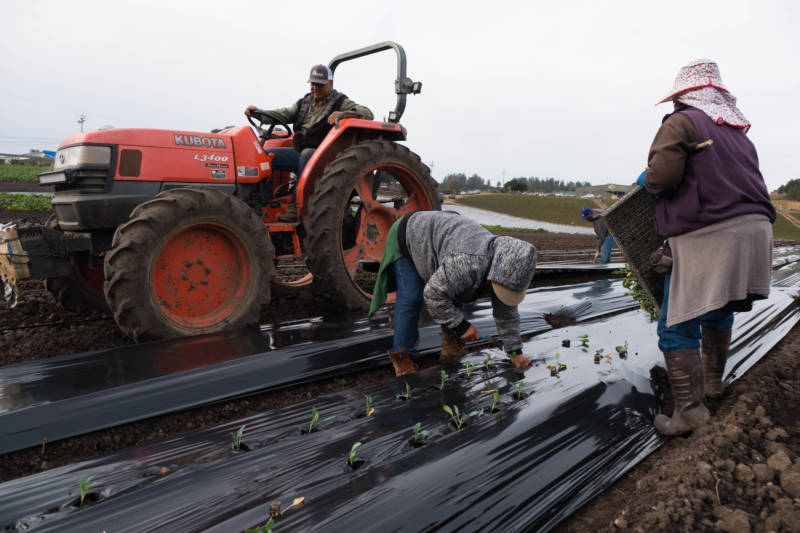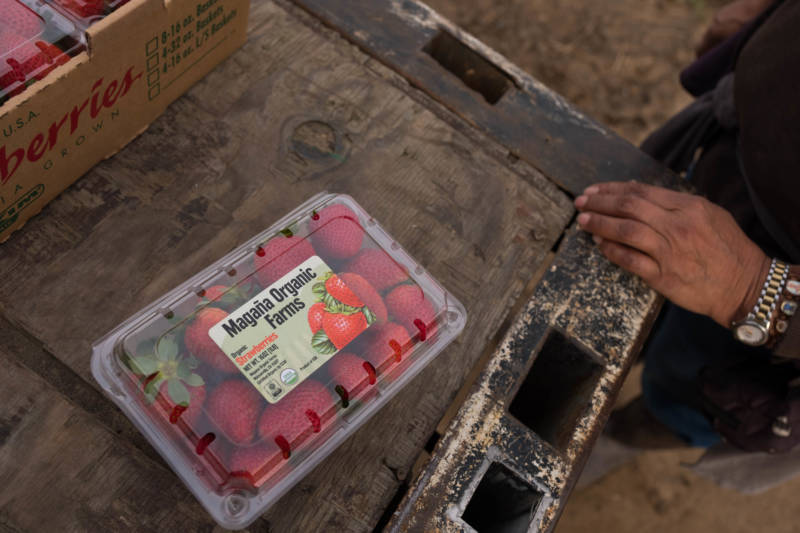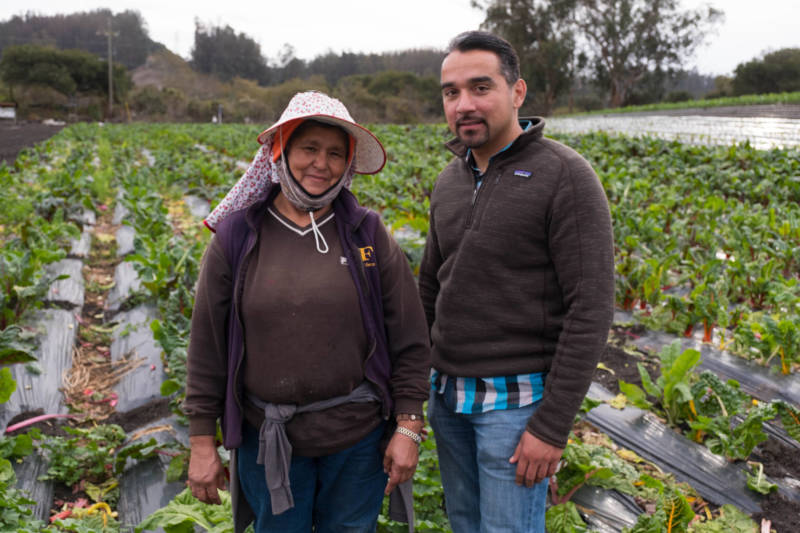Kristyn Leach drives a tractor up and down the length of her field, towing a disc that breaks up remnants of last season’s crops and mixes them back into the soil.
Leach and her farm dog Bibi look right at home on this plot of land, flanked by olive groves, in the Central Valley community of Winters, 30 miles west of Sacramento.
She is part of an emergent generation of small farmers in California with horticulture skills, but little or no business background, who are turning to a growing number of nonprofit programs for financial guidance.
“When I started my farm, it wasn’t because I felt like a competent business person or had any even basic financial literacy as an individual,” Leach explained.
Instead, it was her curiosity about traditional Korean farming that launched her on the path to growing vegetables. She even traveled to Korea to learn from an older generation of farmers.
When she started farming 15 years ago, Leach says it was just a “side hustle.”
But since 2012, she has made her living selling heirloom Korean and East Asian beans, herbs and melon to Namu Gaji, an upscale restaurant in San Francisco. Farming, she notes, turned her into an “accidental business owner.”
Lack of business acumen is an issue for many fledgling farmers, according to Evan Wiig, a spokesman for the California Alliance with Family Farmers, an advocacy group that offers business training to new farmers and ranchers interested in small-scale sustainable agriculture.
Nearly a third of farmers in California are new to the profession — compared to about a quarter nationwide — and many lack formal business training. The USDA defines a “beginner” as someone who has farmed for 10 years or less.
Wiig credits the local food movement with attracting an influx of new farmers in California. “People are seeking to get out from behind desks and have a better connection to the land and be more entrepreneurial,” he explained.

Wiig says the young farmers he meets through CAFF want to be outdoors, getting dirt under their fingernails and working with plants and animals.
“[They] are not exactly drawn by the prospect of sitting behind a computer filling out spreadsheets, crop planning, [doing] profit and loss analysis and developing markets,” he said.
But when small farms go under, it’s often due to the lack of “some element of business planning,” Wiig notes. “That could be securing a solid lease on a property that’s financially viable, or it might be cash flow.”
In an effort to close that skills gap, several nonprofit organizations in California have recently launched business training programs specifically designed for new farmers.
Among them is Kitchen Table Advisors, a nonprofit organization funded largely by foundation grants, which provides two years of free business advice to farmers on small, organic farms in Northern California and the Central Coast.
Since launching in 2013, KTA has helped about 50 farmers.
Access to land and capital are among the most common barriers new farmers face, says David Mancera, who worked in real estate and finance before becoming a Kitchen Table adviser.
Mancera coaches farmers in Monterey, Santa Cruz, San Benito and Madera counties where, he says, it’s particularly difficult to find five-to-10-acre parcels of land for sale.
Several of his clients are former farmworkers making the transition to running their own operation. They can’t afford to buy or lease larger parcels, and aren’t ready to farm at that scale, he explains.

As rain clouds cluster in the skies above Monterey County, Mancera makes his way to visit farmer Bertha Magaña. When he arrives, she’s watching her small crew move swiftly between rows of strawberry plants.
“This will be the last harvest of the season because of the rain,” Magaña tells Mancera in Spanish. She says this year’s strawberry harvest has been much better than the previous one.
Mancera has been advising Magaña for about two years. She was a sharecropper and nursery worker before enrolling at the Agriculture and Land-Based Training Association, or ALBA, in Salinas, to study organic farming practices.
Mancera came into the picture just as Magaña was in the process of purchasing 9 acres of land near Prundale, where she now grows strawberries, artichokes, chard and beets.
Mancera says cash flow management is one of the key skills he’s helped Magaña learn, including showing her how to use a spreadsheet tool to track expenditures and sales. Before that, Mancera says, Magaña was keeping track of everything in her head.
“She worked off a piece of paper and notes she made as she went through the season,” Mancera said. “But there was no formal way to look at her business and try to understand what was making money and what wasn’t.”

Last year was a difficult period for Magaña. Her husband and farming partner had open heart surgery. She says his illness made it difficult for her to work on the farm.
To get through the crisis, Magaña needed a bank loan.
Mancera says lenders want to see evidence that farmers are closely tracking their businesses and have longer term financial strategies. He says he also works with new farmers on crop planning to maintain a profitable mix of crops that align with market demand and labor costs.
KTA also refers its clients to California FarmLink, a nonprofit organization that helps beginning farmers secure loans to buy or lease new land.
“We don’t tell them what to do,” he explained. “We guide them, we help them ask questions. Ultimately, they’re the business owners. We’re trying to help them develop this business mindset.”
The California Dream series is a statewide media collaboration of CALmatters, KPBS, KPCC, KQED and Capital Public Radio with support from the Corporation for Public Broadcasting, the James Irvine Foundation and the College Futures Foundation.

